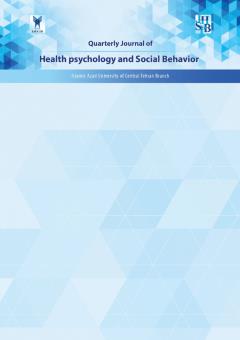Generation Z’s Attitudes Toward Learning in Different Educational Systems: A Comparative Study of Iran and Malaysia
Subject Areas : Social Comparison
1 - Lecturer, Islamic Azad University, Central Tehran Branch, Tehran, Iran
2 - Master of Educational Management, Islamic Azad University, Hormozgan Science and Research Branch, Bandar Abbas, Iran
Keywords: Generation Z, digital learning, comparative education, Iran, Malaysia, learning preferences,
Abstract :
Generation Z, the first generation to grow up in a digital environment, exhibits learning attitudes and styles that differ significantly from those of previous generations. This study aims to analyze and compare Generation Z’s attitudes toward learning in Iran and Malaysia. Employing a comparative review method, 27 reputable international and regional academic sources were qualitatively analyzed. Findings indicate that a preference for digital learning, an interactive approach, the need for immediate feedback, and a focus on skills-based education are shared characteristics of Generation Z in both countries. However, notable differences emerge in terms of technological infrastructure, educational policies, and learning culture. In Malaysia, Generation Z benefits from institutional support and access to modern learning tools. In contrast, Iran’s traditional educational structure, internet restrictions, and lack of interactive resources have created a disconnect between the expectations of Generation Z and the realities of formal education. This study underscores the need to revise Iranian educational policies to better align with the needs of this generation. The findings may assist policymakers and educational planners in designing more responsive and effective learning systems.
Ahmadi, M., & Ghaffari, A. (2022). Digital divide and generation Z’s educational dissatisfaction in Iran. Iranian Journal of Educational Technology, 14(3), 45–61. Retrieved from https://ije.ut.ac.ir/
Alruthaya, A., Alghamdi, A., & Alshehri, H. (2021). Digital technology and Gen Z learning behavior in higher education. arXiv preprint, arXiv:2104.02123. https://arxiv.org/abs/2104.02123
Braun, V., & Clarke, V. (2006). Using thematic analysis in psychology. Qualitative Research in Psychology, 3(2), 77–101. https://doi.org/10.1191/1478088706qp063oa
Cameron, J., & Pagnattaro, M. (2017). Educating the iGeneration. Educational Leadership, 74(8), 12–18. Retrieved from http://www.ascd.org/publications/educational-leadership.aspx
Creswell, J. W. (2013). Qualitative inquiry and research design: Choosing among five approaches (3rd ed.). SAGE Publications. https://us.sagepub.com/en-us/nam/qualitative-inquiry-and-research-design/book246896
Du Plessis, E. (2011). Social learning tools for Gen Z. Frontiers in Education, 6(1), 55–62. https://www.frontiersin.org/articles/10.3389/feduc.2021.00055/full
Frand, J. (2023). Teaching Gen Z in the digital age: New challenges and approaches. Educational Futures, 11(2), 99–112.
Gochenouer, D., Nichols, B., & Roberson, T. (2025). Preferred teaching delivery methods for Generation Z. Journal of Higher Education Theory and Practice, 25(1), 30–42.
Kim, K.-J. (2024). Medical student needs for e-learning: Perspectives of Generation Z. Korean Journal of Medical Education, 36(2), 95–104. https://kjme.kr/journal/view.php?doi=10.3946/kjme.2024.36.2.95
Khan, I. A., & Al-Shibami, A. H. (2020). Learning preferences of Gen Z and impact on workplace dynamics. TEST Engineering & Management, 82(5), 12275–12285. Retrieved from https://www.testmagzine.biz/index.php/testmagzine/article/view/13192
Lee, M. N. N., & Hassan, M. A. (2024). Multicultural education policy and digital inclusion in Malaysian higher education. Asian Journal of Education and Learning, 15(1), 23–34.
Lim, S. K., & Baharudin, H. (2022). Impact of digital tools on Generation Z’s learning engagement. Malaysian Online Journal of Educational Technology, 10(1), 45–57.
Ministry of Education Malaysia. (2013). Malaysia Education Blueprint 2013–2025 (Preschool to Post-Secondary Education). MOE Malaysia. Retrieved from https://www.moe.gov.my/en/
Mohd Ishak, N., Rahim, S. A., & Zainal, A. (2022). Learning preferences of Generation Z undergraduates. Journal of Learning for Development, 9(2), 115–129. https://jl4d.org/index.php/ejl4d/article/view/449
Naim, M. F. (2021). Learning preferences of Gen Z employees: A conceptual review. In Applications of Work Integrated Learning (pp. 56–68). Springer. https://doi.org/10.1007/978-3-030-69602-0_5
Nicholas, D. (2020). Understanding Gen Z learning: Characteristics and expectations. Journal of Educational Technology, 18(2), 33–44.
Nouri, J. (2020). Students’ multimodal learning and digital habits: A challenge for formal education. Education and Information Technologies, 25(4), 4169–4189. https://doi.org/10.1007/s10639-020-10173-0
Patel, D., Patel, R., & Patel, S. (2011). Social constructivism and learning. International Journal of Education, 3(1), 55–62. Retrieved from https://www.researchgate.net/publication/275722611_Social_Constructivism_and_Learning
Purcell, K., Heaps, A., Buchanan, J., & Friedrich, L. (2012). How teens do research in the digital world. Pew Research Center. Retrieved from https://www.pewresearch.org/internet/2012/11/01/how-teens-do-research-in-the-digital-world/
Rahimi, M., & Jafari, M. (2021). Iranian students’ attitudes towards MOOCs: Generation Z perspectives. Technology in Education Journal, 5(1), 41–58.
Rue, D. (2018). Systematic review of the ADDIE model for Generation Z. International Journal of Research, 10(3), 91–99.
Saetang, S. (2024). Learning styles and online education preferences among Gen Z students. Journal of Applied Informatics, 7(1), 33–45.
Saxena, M., & Mishra, D. K. (2021). Gamification and Gen Z in higher education: A systematic review. International Journal of ICT in Education, 17(3), 121–138.
Schwieger, D., & Ladwig, C. (2018). Reaching and retaining the next generation: Adapting to the expectations of Gen Z in the classroom. Information Systems Education Journal, 16(3), 45–54. Retrieved from http://isedj.org/16/3/
Seemiller, C., & Grace, M. (2019). Generation Z: A century in the making. Routledge. https://www.routledge.com/Generation-Z-A-Century-in-the-Making/Seemiller-Grace/p/book/9781138610372
Seemiller, C., & Grace, M. (2017). Teaching the iGeneration. Educational Leadership, 74(8), 20–26. Retrieved from http://www.ascd.org/publications/educational-leadership.aspx
Singh, N., Tripathi, S., & Dubey, R. (2022). Flipped classroom impact on Gen Z engagement. Education Sciences, 12(1), 22–35. https://doi.org/10.3390/educsci12010022
Sparks & Honey. (2017). Gen Z 2025: The final generation. Sparks & Honey Consulting. Retrieved from https://sparksandhoney.com/gen-z-2025-the-final-generation/
Stern, D. (2014). Enhancing Gen Z learning through social tools. Frontiers in Education, 3(2), 66–74. https://doi.org/10.3389/feduc.2018.00066
Tan, C. L., Lim, C. H., & Aziz, A. R. A. (2023). Gen Z and digital pedagogy in Malaysian universities. Asian Journal of Education, 19(2), 75–92.
Turner, A. (2021). Generation Z: Technology and social interest. The Journal of Individual Psychology, 77(1), 15–25. https://doi.org/10.1353/jip.2021.0003

